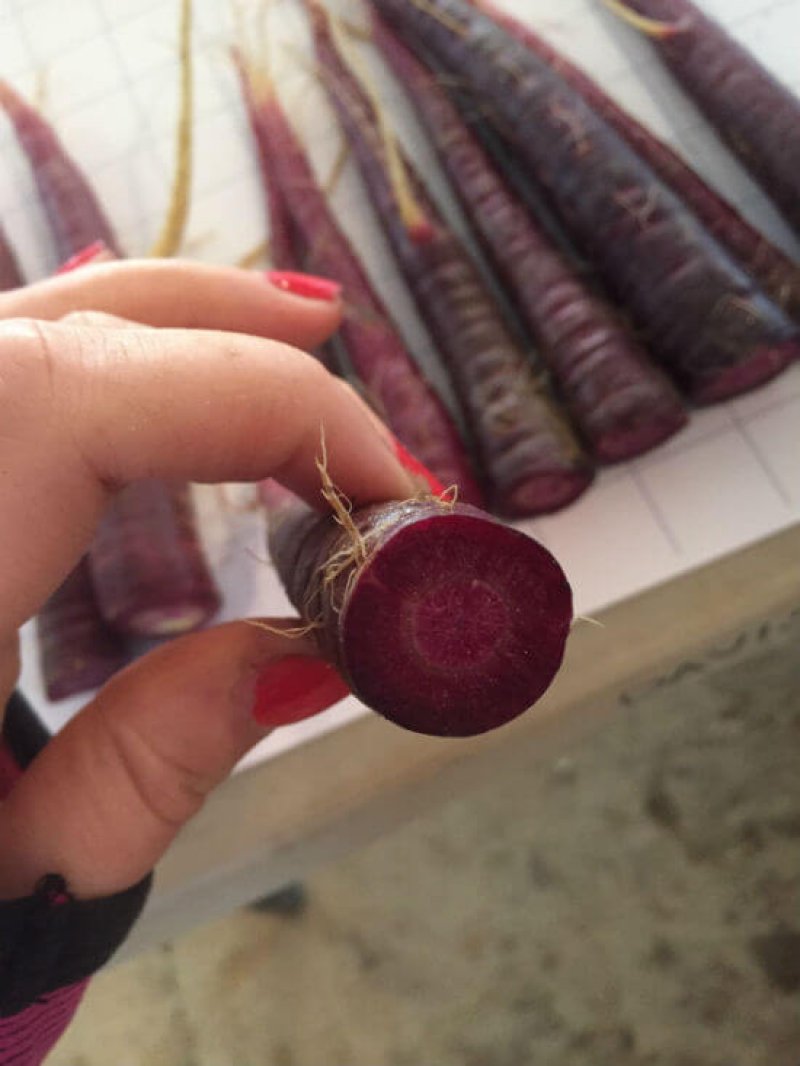Purple Carrots sound like something straight out of the creative mind of Dr. Seuss. But they might just become North Carolina’s next signature cash crop.
The North Carolina Biotechnology Center’s Crop Commercialization Program (CCP) – which coordinates new, high-value crop research in the state – originally dug up the market opportunity, so to speak. It began investigating the potential of purple carrots a couple of years ago.
…
CCP has sponsored trials to grow this distinctive vegetable in three areas of the state. The results are promising, according to CCP Project Administrator Sarah Frank. So the march toward a carrot of a different color continues unabated.
Don’t you want to know why?
A color to dye for
Almost all carrots grown in the U.S. are of the orange variety you see in your local grocery store. Not that there’s anything wrong with that.
But the color purple brings with it some unique benefits. These carrots can be used to make natural dyes and food colorants, as well as a variety of food products. Combine a cool look with coloration possibilities, and you just might have a highly marketable product on your hands.
Read full, original article: Never Seen a Purple Carrot? Well, You Soon May See Them in NC































